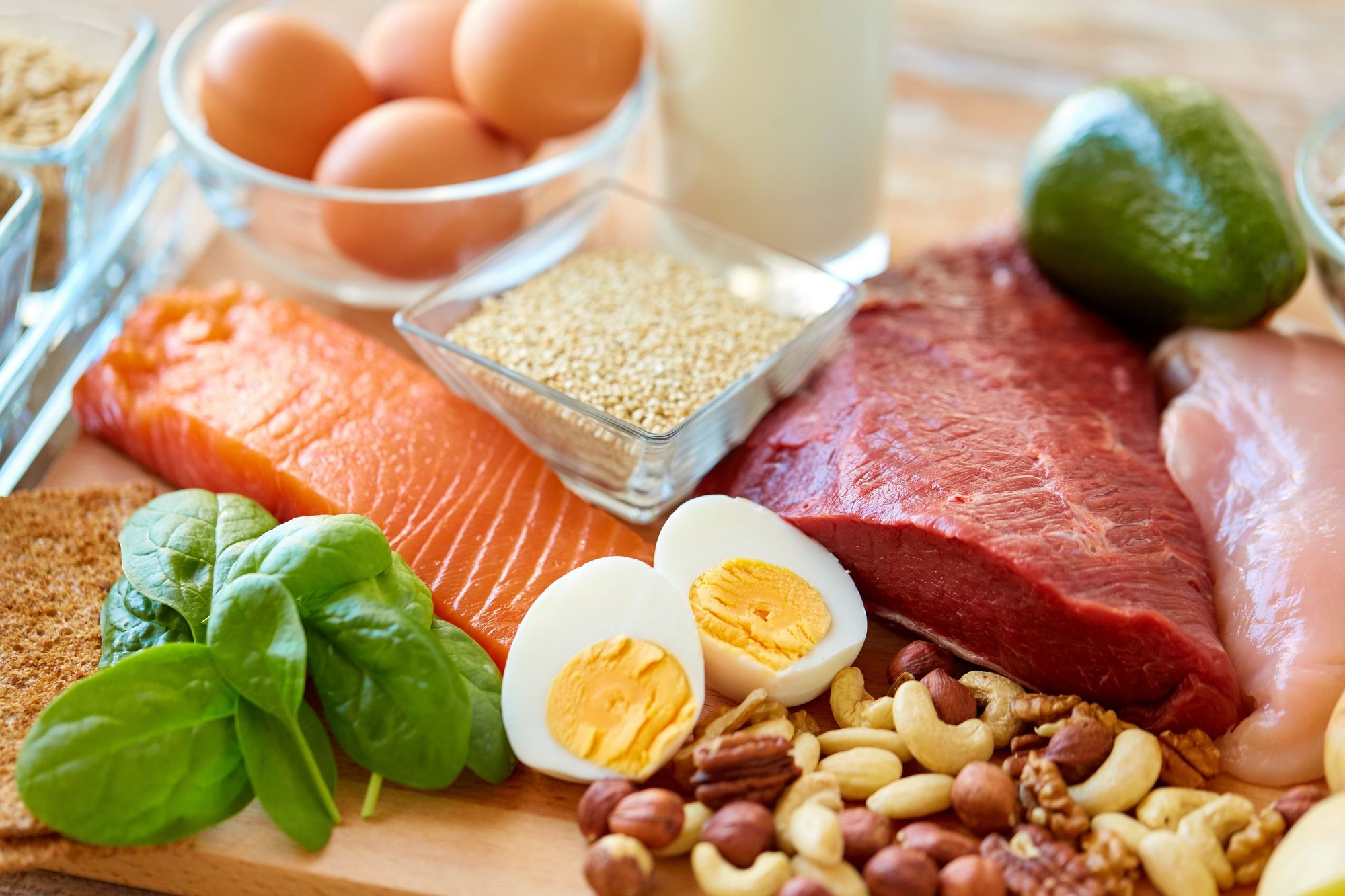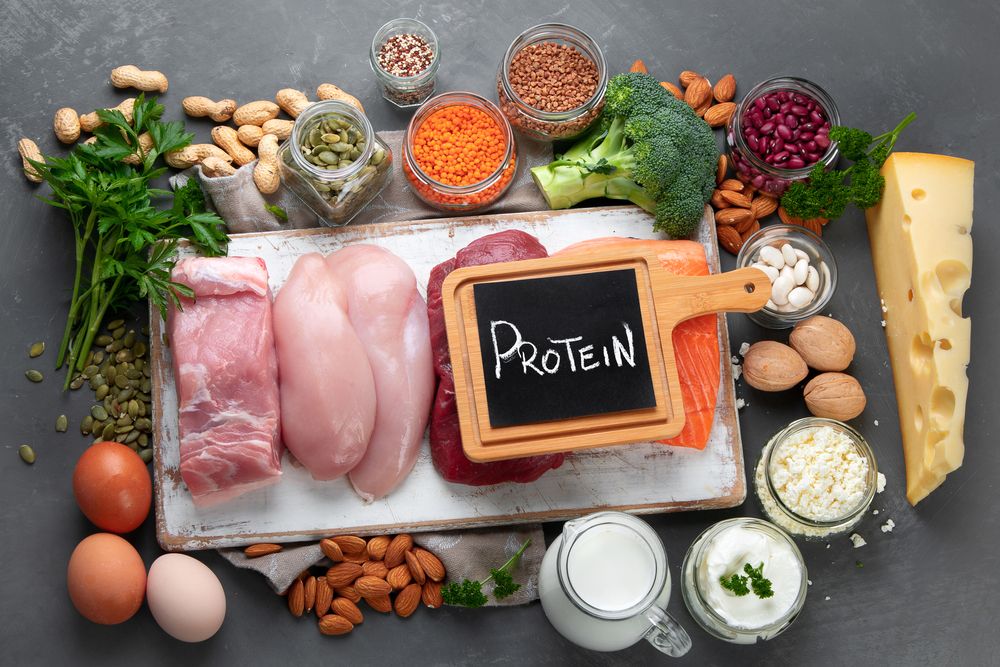Let's admit it: We're a bit obsessed with protein. Research in Nutrition Reviews indicates that most Americans consume significantly more protein than the recommended daily amount. While protein plays a vital role in various bodily functions, such as aiding in weight loss, muscle building, and promoting a feeling of fullness, the question remains: How much of this essential macronutrient do you need each day to foster muscle growth?
To uncover the answer, we've sought the expertise of Gianna Masi, CPT, RDN, a certified personal trainer and registered dietitian affiliated with Barbend. She provides valuable insights into the daily protein requirement for muscle building, an essential aspect of any fitness journey. Understanding the optimal protein intake is crucial for achieving your fitness goals, regardless of where you currently stand in your fitness journey.
Thankfully, achieving the ideal protein intake doesn't entail mindlessly downing protein shakes or gorging on endless chicken breasts. It involves a more nuanced approach that takes into account your individual body and activity level. That's why we've delved into scientific research to provide a clear understanding of the relationship between protein consumption and muscle development.
In this article, we will explore the link between protein intake and muscle growth, determine the necessary protein quantity, examine the potential drawbacks of excessive protein consumption, and identify the best protein sources for enhancing muscle mass. It's time to dispel protein myths, refine your physique, and optimize your fitness regimen. Keep reading to unravel the protein puzzle.
The Relationship Between Protein Consumption and Muscle Growth
A Quick Review of Protein's Role in Muscle Growth
Let's revisit the basics of high school biology: Proteins consist of amino acids, which are the fundamental building blocks responsible for muscle growth. You may be familiar with branched-chain amino acids (BCAAs), such as valine, leucine, and isoleucine, which play a significant role in muscle development.
During exercise, your muscles undergo microscopic damage. This is where protein steps in to repair and fortify these muscles. It supplies the necessary amino acids required for this process, essentially serving as the construction crew for your body's muscle tissue. Without an adequate protein intake, your muscles might struggle to recover and grow following physical activity.
Masi elaborates on this connection: "The relationship between protein consumption and muscle building lies in the fact that we require a minimum daily protein intake, coupled with resistance training, to facilitate muscle development and preservation. Protein isn't exclusive to bodybuilders or powerlifters; it's a crucial component for everyone. Ensuring an ample daily protein intake supports our muscles and lean body tissue.
How Much Protein Is Required for Muscle Building?

The ideal protein intake for muscle development can vary depending on several factors, including age, gender, weight, and activity level. Current research suggests that a range of approximately 1.6 to 2.2 grams of protein per kilogram of body weight daily is recommended to supply your muscles with the essential amino acids required for growth. To maximize the benefits of protein consumption, studies indicate that it's advantageous to distribute your protein intake evenly throughout the day across three or four meals, each containing 25 to 30 grams of high-quality protein.
Gianna Masi, a certified personal trainer and registered dietitian, highlights that the Recommended Dietary Allowance (RDA) for protein stands at 0.8 grams per kilogram of body weight (g/kg/bw) per day. However, this amount is relatively low when it comes to the goals of muscle maintenance and building. Many individuals in good health may need a higher protein intake, ranging from 1.6 to 2.4 g/kg/bw per day. It's essential to complement protein consumption with sufficient calories from carbohydrates and fats to support the growth and retention of muscle mass. Masi also suggests that individuals can adapt their protein intake to their daily routine, spreading it across meals and snacks as "protein pulses" to meet their overall daily protein requirements.
Is it Possible to Consume Too Much Protein?
While protein is a vital component of muscle development, it's essential to strike a balance and avoid the misconception that increasing protein intake will automatically result in more muscle. Research has indicated that excessive protein consumption can place strain on the kidneys over time. To support your overall health and muscle-building goals, it's advisable to adhere to recommended protein amounts and concentrate on maintaining a well-rounded diet that provides your body with a wide range of essential nutrients.
However, it's important to note that concerns about overdoing protein intake are less relevant for physically active individuals. Gianna Masi points out, "There are myths suggesting that one should limit protein intake to only 30 grams per meal, but this is not accurate. While there may be optimal numbers for muscle protein synthesis, consuming more than 30 grams of protein per meal is perfectly acceptable." Thus, individuals engaged in regular physical activity can adapt their protein intake to suit their needs without undue worry about exceeding specific protein limits per meal.
Does the Source of Protein Affect Muscle Building?

The debate between animal and plant-based protein sources is a topic of ongoing discussion in the field of nutrition. Animal-derived proteins such as chicken, eggs, and dairy provide complete proteins containing all essential amino acids. In contrast, recent scientific reviews have suggested that plant-based sources like beans, lentils, and tofu can be equally effective in stimulating muscle protein synthesis when combining various plant proteins. The key to success lies in diversifying your protein sources to ensure a comprehensive nutrient intake.
However, the impact on muscle-building potential goes beyond the source of protein—it also hinges on the amino acids consumed. Gianna Masi emphasizes the role of amino acids: "Protein quality significantly affects overall body composition and weight management. Leucine, an amino acid crucial for stimulating muscle protein synthesis, is found in higher quantities in certain protein sources, making them superior choices for muscle development. These sources include meats, fish, whey protein, dairy products like cottage cheese, firm tofu, and black beans."
In summary, the protein source and amino acid composition both play vital roles in muscle-building endeavors. A balanced approach that incorporates diverse protein sources rich in essential amino acids is recommended for individuals seeking to optimize muscle development and overall health.

